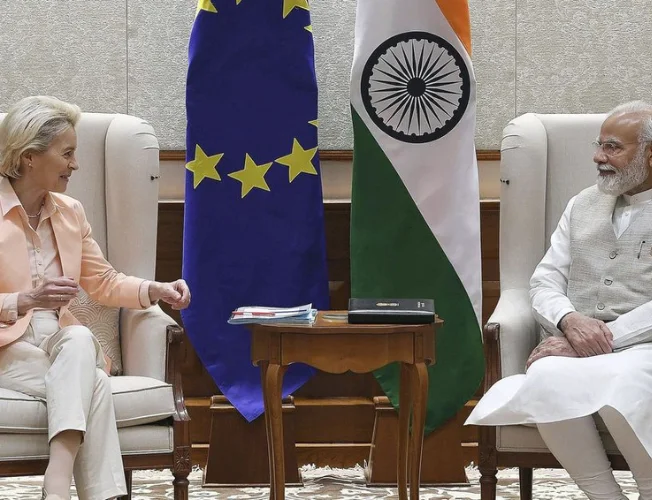Introduction
India is actively seeking expanded market access for crucial exports such as steel, rice, and shrimp from South Korea as part of the ongoing negotiations to upgrade the existing free trade agreement between the two nations, officially known as the Comprehensive Economic Partnership Agreement (CEPA).
Key Negotiation Points
1. Market Access for Steel:
India has specifically emphasized the need for increased market access for steel products in the negotiations. This strategic move aims to bolster the export potential of Indian steel in the South Korean market.
2. Rice Quota Challenges:
Concerns have been raised regarding the existing tariff rate quota of five lakh tonnes for rice in Korea. India falls into the “others” category with a limited quota of 20,000 tonnes, while larger quotas are allocated to countries like China, Australia, the US, Thailand, and Vietnam. India is advocating for a revision, either by being placed in a country-specific category or by securing an augmentation of its existing quota.
3. Import Duty on Shrimp:
India has highlighted the import duty of 5 per cent on shrimp in South Korea. Addressing this issue is crucial for facilitating smoother trade in shrimp products and promoting greater market penetration.
Negotiation Progress
1. Ninth Round of CEPA Upgradation:
The most recent development in the negotiations occurred during the ninth round of India-Korea CEPA upgradation discussions in Seoul from November 3-4, 2022. This round focused on crucial aspects of the trade agreement, including market access and tariff-related concerns.
2. Trade Deficit Concerns:
India has expressed significant concerns regarding the growing trade deficit between the two nations. While India’s exports to South Korea totaled USD 6.65 billion in 2022-23, representing a decline from USD 8 billion in the previous fiscal year, imports surged to USD 21.22 billion in 2022-23 compared to USD 17.5 billion in 2021-22.
Conclusion
India’s proactive stance in the CEPA upgradation negotiations reflects a strategic effort to address trade imbalances and enhance the market prospects for key exports. The outcomes of these negotiations will not only impact India’s trade relations with South Korea but also shape the trajectory of specific industries, including steel, rice, and shrimp exports, in the global market. Stakeholders closely await the resolution of these negotiations for insights into the future trade dynamics between the two countries.
Read more.. Marketing News, Advertising News, PR and Finance News, Digital News.





